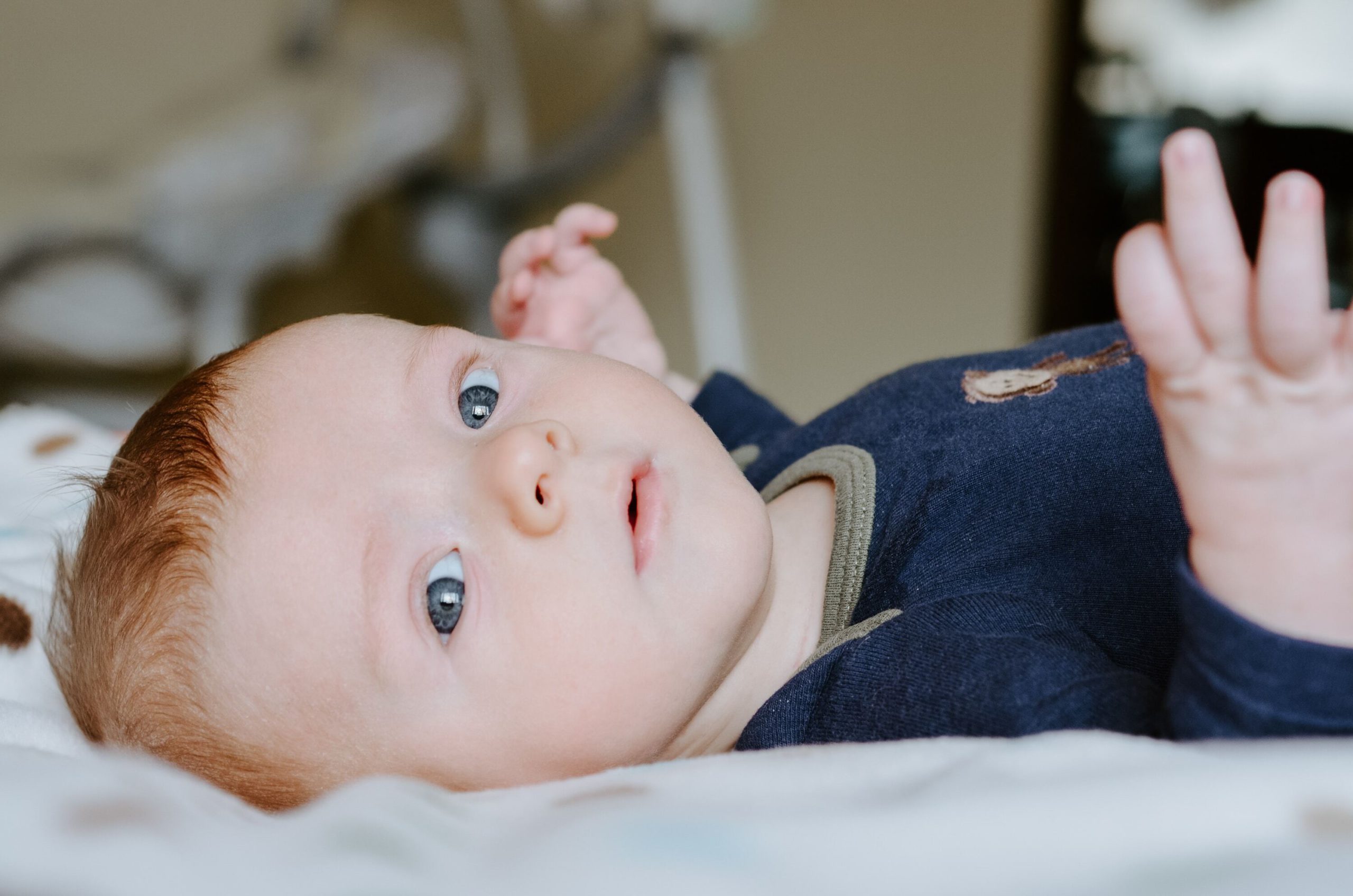
GET STARTED WITH A FREE CUSTOM SCHEDULE AND PLAN OVERVIEW ON OUR MOBILE APP →
TRY BATELLE FOR FREE →

As your baby approaches the 8-month mark, you might find yourself navigating another round of sleep issues. The 8-month sleep regression is a phase many parents are familiar with, and it’s often linked to various developmental milestones and changes in sleep habits. While there are several factors at play during this period, in this blog, we’ll focus primarily on understanding separation anxiety and its profound impact on sleep.
A sleep regression is a period when a little one who has been sleeping well, suddenly starts waking up at night and/or during naps or fights sleep. While the 4-month sleep regression is unique in that it directly impacts sleep patterns due to changes in sleep architecture, other regressions, such as the 6-month sleep regression, as well as the 8-month sleep regression and others, are more influenced by whatever your child is working on developmentally. This is why there can be variations in the timeline of when sleep disruption occurs. Unlike skills such as crawling or walking, which once mastered, remain consistent, sleep is ever-evolving. While sleep disruptions are often referred to as “regressions”, your child’s ability to sleep has not regressed, it’s just disrupted.
Around this time, your 8-month-old baby is beginning to develop a keen sense of object permanence—the understanding that things continue to exist even when out of sight. This cognitive leap can lead to separation anxiety, as they become more aware of and sensitive to separations from primary caregivers.
Separation anxiety is cyclical in nature. As babies grow and develop, they may experience multiple phases of heightened separation anxiety, each coinciding with developmental leaps or disruptions in their routine. This cyclical pattern means that just as one phase seems to resolve, another might be on the horizon, impacting sleep patterns anew.
During periods of heightened separation anxiety, you might notice:
While separation anxiety plays a significant role, other developmental changes can also influence sleep patterns:
During this period, you might notice:
The 8-10 month sleep regression can vary in duration, but most parents notice a change for about 2-6 weeks. However, the exact length can differ for each child. It’s essential to remember that while challenging, this phase is temporary and often linked to significant developmental leaps.
The 8-month sleep regression can be a challenging phase for both babies and parents. Here are some sleep tips to help you navigate this period:
If sleep training is something you’re contemplating as your baby approaches the 8-month mark, it’s essential to understand the developmental changes they’re undergoing and how these can influence the process. Remember, every family is unique, and what works for one might not work for another. It’s essential to find a sleep training method that feels right for you and your baby. Here’s what you should consider:
When contemplating sleep training, it’s crucial to choose a method that aligns with your parenting style. This alignment ensures that you can implement the chosen approach consistently, which is key to its success.
If sleep training is on your radar, the 8-month mark can offer a conducive environment, given the developmental milestones your baby is likely achieving. However, always approach the process with patience, understanding, and consistency, and ensure that any method you choose resonates with your parenting beliefs and values.
The 8-month milestone is a testament to the ever-changing journey of parenthood. As your baby continues to explore and grow, their sleep patterns might keep you guessing. Embrace each moment, trust your instincts, and remember that you’re not alone in this journey. Lean on your support network and always consult with your pediatrician if you have concerns about your baby’s health or development.
For more information on sleep regressions at other ages, check out this blog on sleep regressions here.
If you want to check your child’s sleep schedule – you can use our free sleep generator tool.
